#tsar ivan v
Text
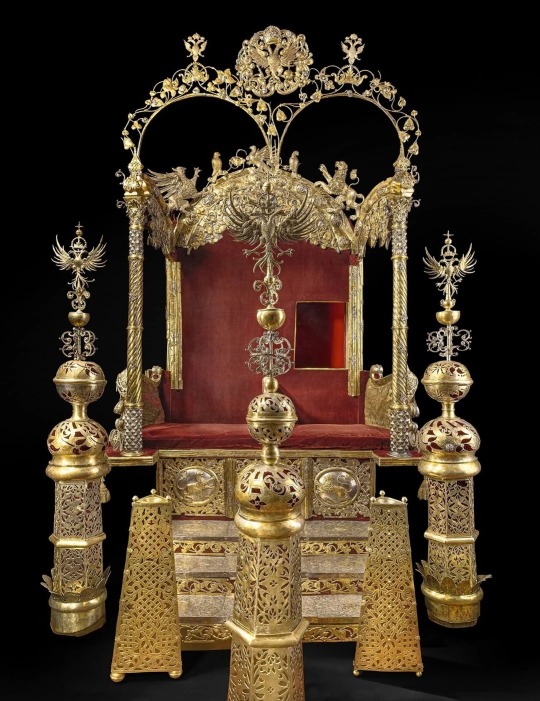
"Double Throne of Ivan V and Peter I" Tsardom of Russia, 1682 - 1684.
Gilded silver throne in Baroque style was executed in Kremlin Workshops in 80-s of the XVIIth century for two coregent brothers – Ivan Alekseevich and Peter Alekseevich. The throne's double construction associates with an architectural edifice. The throne's back houses a secret hiding-place for mentors of the young tsars who were too small for taking decisions in high politics. Necessary advice was given through a special window in the throne's back covered with red velvet.
37 notes
·
View notes
Text
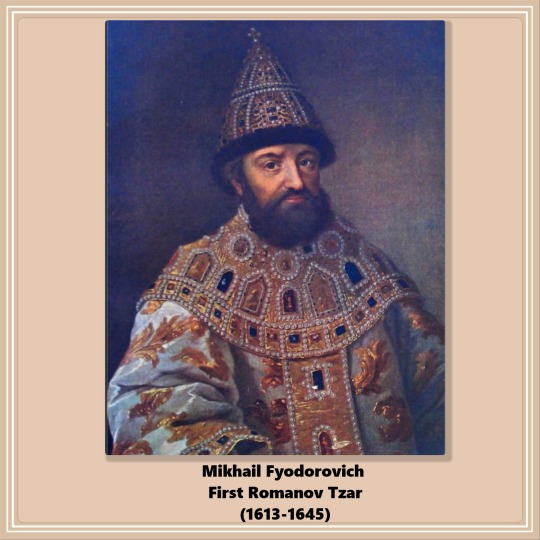




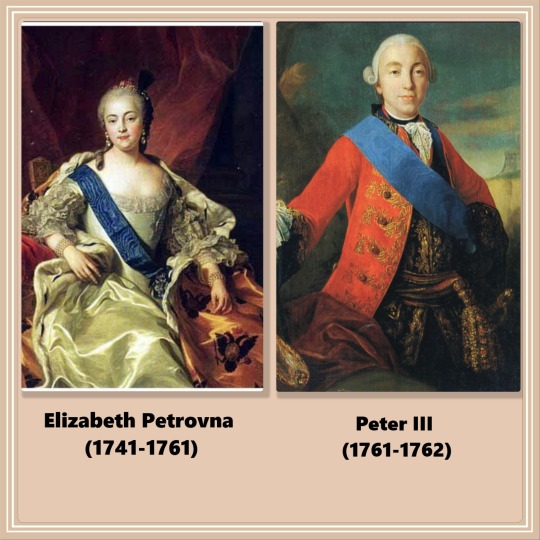

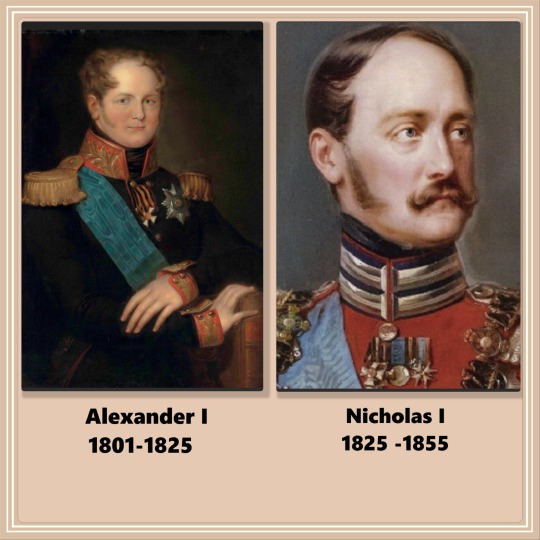

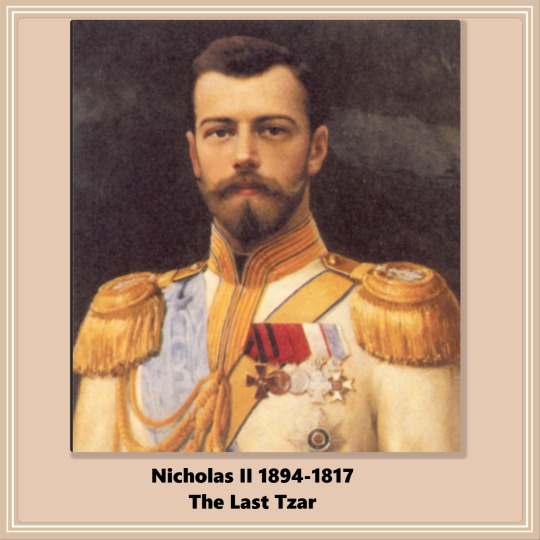
👑The Romanov Dynasty
The Grand Duchy of Moscow under Prince Ivan III was the first unified state on Russian territory. With him began the Rurikid Dynasty (the Rurikid had been around for a long time along hoards of tartars).
The Rurikid ruled from the 1400s until the 1600s. Ivan III can be considered the founder of Russia. While the Rurikid were in power, the Romanovs were boyars (nobles) in their courts. When the Ruriks became extinct, the Romanovs took over. The "Zemsky Sorbor" (a rudimentary parliament) elected Mikhail Feodorovich as the first Romanov Tzar.
The direct male line of the Romanovs ended with Elizabeth of Russia, who was childless. Her nephew Peter III, a member of the House of Holstein-Gottorp (a cadet branch of the German House of Oldenburg that reigned in Denmark), ascended to the throne and adopted his Romanov mother’s house name. Descendants after Elizabeth are sometimes referred to as "Holstein-Gottorp-Romanov."
The above is a gross oversimplification of a very complex course of events.
Highlights about each Romanov Tsar/Tsarina:
👑Mikhail Feodorovich (1613 - 1645): First Romanov Tsar
👑Alexei Mikhailovich (1645 - 1676): Encouraged trade and cooperation with Europe. Father of Peter the Great
👑Feodor III (1676 - 1682): Had very poor health and spent most of his reign in bed
👑Peter I and 👑 Ivan V (1689 - 1785): It was complicated. The two of them were Tsars under the regency of their older sister Sophia.
👑Peter I (1689-1725): Reformed Russia's politics, government, and culture. Made Russia a military power.
👑Catherine I (1725-1727): At the time of Peter the Great's death, the mechanism for succession consisted of the Tsar selecting his successor, but Peter did not elect one before dying. His wife became the Tsarina, but others governed through her.
👑Peter II (1727-1730): Peter's grandson; ascended the throne at 11 and died at 14. The "Privy Council" or "Soviet" ruled through him.
👑Anna Ioannovna (1730-1740): Daughter of Peter's half-brother Ivan. The Privy Council invited her to rule (wanting her to be a puppet), but she disbanded them and ruled herself successfully.
👑Ivan VI (1740-1741): One-year-old son of Ana's niece. She left the throne to him, expecting his mother to govern. Elizabeth, daughter of Peter the Great, deposed him (and his mother.)
👑Elizabeth Petrovna (1741-1761): Last Russian on the Russian throne; her twenty-year reign was successful.
👑Peter III (1761-1762): Grandson of Peter the Great and next in line for the throne after Elizabeth. Ruled for only half a year before being deposed by his wife, Catherine. He was murdered soon after the coup d’etat.
👑Catherine the Great (1762-1796): Her accomplishment went from the Empire’s territorial expansion to political development to the proliferation of sciences. However, the Empire had an enormous external debt by the end of her reign.
👑Paul I (1796-1801): Paul, the son of Catherine the Great and Peter III, became Emperor at 42 after the death of his mother. He started a lot of major military and political reforms. Paul was murdered in a coup d'etat. Paul decreed house laws for the Romanovs (the Pauline laws) – among the strictest in Europe – which established semi-Salic primogeniture and required Orthodox faith for the monarch and dynasts
👑Alexander I (1801-1825): During his reign, Russia defeated Napoleon's forces (which got as far as Moscow in their attempt to conquer Russia.) There was also great development in culture and arts.
👑Nicholas I (1825-1855): Paul I’s third son, younger brother of Alexander. Started railroad construction in Russia, boosting industrialization. Codified Russian laws and reformed finances.
👑Alexander II (1855-1881): His major reforms included the peasant emancipation of 1861, military reform, and the introduction of new types of self-governing village societies and more. Unfortunately, he fell victim to a terrorist after five attempts.
👑Alexander III (1881-1894): Russia didn’t enter any wars in his time. His domestic policy was conservative. He amended the Pauline laws. The economy flourished. But the revolution was brewing below the surface.
👑Nicholas II (1894-1917): His policies were unsuccessful. Established the first official Duma in 1905, but it was too little too late. With the advent of WWI, the Russian Empire ceased to exist. He abdicated. (gcl)
Sources:
Panov, A., Delaroche, P., & Abramuchkin, Y. (2021, July 31). The Complete List of Russian Tsars, Emperors, and Presidents. Russia Beyond. Retrieved June 20, 2023, from https://www.rbth.com/history/334065-complete-list-of-russian-tsars-emperors-rulers-presidents
#russian history#imperial russia#romanov dynasty#Nicholas II#Alexander III#Alexander II#Alexander I#Catherine I#Catherine II#Nicholas I#Paul III#Elizabeth Petrovna#Mikhail Feodorovich#Alexei Mikhailovich#Feodor III#Ivan VI#Peter I#Peter II#Peter III#Anna Ioannovna#Romanov Tsars#gcl
23 notes
·
View notes
Text

English below__
תיראו מופתעים:
פוטין זכה ב״בחירות״ לנשיאות רוסיה ברוב של 87%. המשמעות: אם יכהן עד 2030 יעקוף את סטלין ויהפוך למנהיג שמכהן הכי הרבה זמן בראשות המדינה הרוסית מאז אלכסיי הראשון, שכיהן במשך שלושה עשורים כצאר (1645–1676).
כבר כעת פוטין מכהן בראשות המדינה הכי הרבה בתפקיד מאז סטלין, ששלט 29 שנים.
את מי נשאר לפוטין לעקוף:
פיוטר הראשון ״הגדול״ כיהן במשך 42 שנים (14 מהם ביחד עם איוואן החמישי).
איוואן הרביעי ״האיום״ שלט במשך 39 שנים כצאר (1547־1584).
יקטרינה השנייה ״הגדולה״ שלטה ביד רמה במשך 34 שנים (1762—1796).
מיכאיל הראשון כיהן 32 שנים כצאר בשנים 1613־1645.
אלכסיי הראשון היה צאר במשך כשלושה עשורים וקצת מיולי 1645 עד ינואר 1676.
סטלין (1924–1953) וניקולאי הראשון (1825–1855) כיהנו במשך 29 שנים.
עד להירצחו, הקיסר אלכסנדר השני שלט במשך 26 שנים (1855–1881).
השנה פוטין כבר עקף את אלכסנדר הראשון ששלט במשך 24 שנים (1801־1825).
__
Look surprised…
Putin won the Presidential "election" with a majority of 87%. The meaning: if he serves until 2030, he will overtake Stalin and become the longest-serving leader of the Russian state since Alexei I, who served for three decades as tsar (1645-1676).
Putin is already the longest serving Russian leader since Stalin, who ruled for 29 years.
Who is left for Putin to overtake:
Peter I "The Great" reigned for 42 years (14 of them together with Ivan V).
Ivan IV "The Terrible" ruled for 39 years as Tsar (1547-1584).
Catherine II "The Great" ruled with a firm hand for 34 years (1762-1796).
Mikhail I served as Czar of All Russia for 32 years in the years 1613-1645.
Alexey I was Czar for about three decades from July 1645 to January 1676.
Stalin (1924–1953) and Nicholas I (1825–1855) served as leaders for 29 years.
Until his assassination, Emperor Alexander II ruled for 26 years (1855–1881).
This year Putin has already overtaken Alexander I who ruled for 24 years (1801-1825).
#historyistold#רוסיה#russia#россия#free russia#putin#vladimir putin#presidential election#2024 presidential election#פוטין#путин#владимир путин#владимир владимирович путин#выборы#выборы 2024#президентрф#президент россии#дермократия#חראקרטיה#היסטוריה
3 notes
·
View notes
Text
Wives and Daughters of Russian Tsars: Ages at First Marriage
I have only included women whose birth dates and dates of marriage are known within at least 1-2 years, therefore, this is not a comprehensive list. This data set ends with the daughters of Peter I; the start of Imperial Russia.
Anastasia Romanova, wife of Ivan IV; age 17 when she married Ivan in 1547 CE
Maria Temryukovna, wife of Ivan IV; age 16 when she married Ivan in 1561 CE
Maria Skuratova-Belskaya, wife of Boris Godunov; age 18 when she married Boris in 1570 CE
Marfa Sobakina, wife of Ivan IV; age 19 when she married Ivan in 1571 CE
Anna Koltovskaya, wife of Ivan IV; age 20 when she married Ivan in 1572 CE
Maria Nagaya, wife of Ivan IV; age 28 when she married Ivan in 1581 CE
Irina Godunova, wife of Feodor I; age 23 when she married Feodor in 1580 CE
Yelena Sheremeteva, wife of Ivan Ivanovich; age 28 when she married Ivan in 1581 CE
Marina Mniszech, wife of False Dmitry I; age 17 when she married Dmitry in 1605 CE
Maria Dolgorukova, wife of Michael I; age 23 when she married Michael in 1624 CE
Eudoxia Streshneva, wife of Michael I; age 18 when she married Michael in 1626 CE
Maria Miloslavskaya, wife of Alexis; age 24 when she married Alexis in 1648 CE
Natalya Naryshkina, wife of Alexis I; age 20 when she married Alexis in 1651 CE
Agafya Grushetskaya, wife of Feodor III; age 17 when she married Feodor in 1680 CE
Marfa Apraksina, wife of Feodor III; age 18 when she married Feodor in 1682 CE
Praskovia Saltykova, wife of Ivan V; age 20 when she married Ivan in 1684 CE
Eudoxia Lopukhina, wife of Peter I; age 20 when she married Peter in 1689 CE
Catherine I of Russia, wife of Peter I; age 18 when she married Johan Cruse in 1702 CE
Anna of Russia, daughter of Ivan V; age 17 when she married Frederick William Duke of Courland and Semigallia in 1710 CE
Charlotte Christine of Brunswick-Wolfenbuttel; age 17 when she married Alexei Petrovich in 1711 CE
Catherine Ivanovna, daughter of Ivan V; age 25 when she married Karl Leopold, Duke of Mecklenburg-Schwerin, in 1716 CE
Anna Petrovna, daughter of Peter I; age 17 when she married Charles Frederick I, Duke of Holstein-Gottorp, in 1725 CE
The average age at first marriage was 18 years old.
2 notes
·
View notes
Text
Honourable electorate (well, those of you who are still with us), you simply MUST see this
youtube
We are simply THRILLED to have someone to argue with, now that this election is over.
25.Pyotr III. - *rings the bell behind OP's back* SHAME! Look, noone is going to argue that he was some misunderstood genius (though he WAS misunderstood in some regards, we suppose), and his one L was pretty significant, but to argue he was worse than, say, Anna Ivanovna just based on it?! For shame!
IN THIS POLL: Got eliminated in the first round (big L), where he lost to Pavel I. (even bigger L). In the Worst Romanov poll, he was deemed much worse than Alexander I., but absolutely not as bad as Nikolai I., so. Overall not THE worst obviously, but one of the least esteemed members of this bracket certainly.
24.Pyotr II. - ...okay, that is just. Unfair. This guy was literally excluded from this bracket because HE WAS A FUCKING MINOR. He died at 14. You ghouls.
23.Nikolai II. - This one, though, is completely fair. His record was indeed just as terrible as OP claims, noone's gonna argue with that.
IN THIS POLL: Well, except for our esteemed electorate, we suppose! He at least won in the first round over Mikhail I., so that's something. Of course the one who defeated him was Alexei I., and we are still unsure why. We suppose Alexei I. was indeed less of an unmitigated disaster than Nikolai II., low bars and all.
22.Nikolai I. - A bit unfair to place him under Anna Ivanovna mostly based on OP's misunderstanding of the Crimean War, but very well. Our knowledge of his domestic policy is somewhat limited, but what little we do know is that he certainly HELP matters in any way.
IN THIS POLL: Was unequivocably named the second worst Romanov tsar after Alexander III.
21.Fyodor I. - "Obligatory insane one" well fuck you too sir??? That one's also unfair. The guy didn't really rule, like he wasn't even capable of it. Not a Romanov, so not in this poll, though we suppose one can ascertain what our electorate would think of him from the position of Ivan V. in this bracket.
20.Ivan VI. - Just like Pyotr II., this one was excused for being a fucking minor.
19.Konstantin Pavlovich - Not in this bracket, didn't rule, case closed.
18.Fyodor II. - Would probably be excused from the regular bracket, as well as in the admin's eyes, on account of being a minor.
IN THIS POLL: Was mentioned in passing in the True Heir Of The Rurikids bonus poll, where his dad, and he by extension, would've won had it not been for those meddling Poles!
17.The Totally Real Dimitry I. - I'll be honest, I don't have much faith in this guy's ruling capabilities. His reign amounted to worming himself into the good graces of those damn Poles by making a bunch of promises he couldn't keep, then getting shanked when that fact came to light. He probably wouldn't even get to Moscow had it not been for Boris Godunov's untimely death. This guy is the ultimate proof that sometimes, not even luck can often compensate for raging incompetence.
IN THIS POLL: Ranked after Boris Godunov and above Vasily Shuysky AND patriarch Filaret in the True Heir of Rurikids bonus poll. Make of that what you will.
16.Vasily IV. - We have absolutely nothing to add to the OP's assessment, other than sheer bafflement at the fact that he's not even lower.
IN THIS POLL: Another True Heir of Rurikids candidate - and definitely the worst ranking one (together with patriarch Filaret, which is frankly horrific patriarch Filaret slander).
15.Ekaterina I. - Look, we're not saying she was a GOOD ruler, we just implore you to give the woman a break. When she ascended the throne, she had 18 years of marriage to Pyotr I. behind her. Of course she didn't do shit, she must've been so tired at that point!
IN THIS POLL: Managed to beat Ivan V., only to then lose (after a rematch) to Alexander II., our eventual winner. Again, make of that what you will.
14.Ivan V. - See my opinion on Fyodor I. This guy arguably shouldn't even count.
IN THIS POLL: Though it's true Ekaterina I. beat him in the first round of Best Romanov, which qualified him for the Worst Romanov. He beat his brother there, too, so in the esteem of this electorate, he seems to be pretty low.
13.Pavel I. - Again, OP was supremely unfair to this... Unique political thinker. He might not have gotten to put that many of his ideas in praxis, but he did have them; boy, did this guy EVER have ideas.
IN THIS POLL: This electorate was much more capable of appreciating this super special snowflake of a monarch; he beat not only Pyotr III., but Sophia Alexeievna as well, which is a pretty good result! He was eventually unable to defeat his mother, but that's a feat that only one Romanov in this bracket achieved, so.
12.Alexander III. - OP really does not give this guy enough credit for laying the groundwork for the Russian Revolution. And the fact that it was ultimately Nikolai II. whose sheer incompetence caused it is no excuse, considering it was Alexander who ensured that Nikolai's education was so lacking.
IN THIS POLL: The unquestionable winner of the Worst Romanov Monarch title, so. This electorate does not seem especially fond of him, needless to say.
11.Fyodor III. - A decent ruler, all things considered, but loses some points for being ultimately unable to prevent horrific factional warfare on his court from festering and ultimately erupting right after his death.
IN THIS POLL: Another one with fairly ambiguous results; in the Best Romanov, he was knocked out in the first round by the eventual winner Alexander II., while in the Worst Romanov, he was proclaimed better than Ivan V., a literal puppet ruler.
10.Boris I. Godunov - A bit of a mixed bag, really; seemed to have been highly competent, but... The cementing of serfdom tho. That's kind of a black spot on his entire resume, innit? His reign was over not a good time for most Russians, but admittedly that wasn't all his fault.
IN THIS POLL: As we mentioned when we talked about his son, he would've won the True Heir Of Rurikids if it wasn't for THE GODDAMN POLES.
9.Alexei I. - Funnily enough, his alleged passivity is a myth according to some? In fact, he had quite the temper, comparable to his youngest son, at least by some accounts. As for his ability to identify talent, which OP mentions... *softly* No. Admittedly, he also had competent advisors, but c'mon, this dude promoted old Morozov AND Nikon the Drama Queen. And of course OP doesn't mention the fact that he was a reactionary even by the standards of 17th century Russia, so.
IN THIS POLL: Despite all of this, he was surprisingly successful on this poll. He pummelled Alexander III., no surprises there, but also won over the baby blue eyes of Nikolai II., before being rightfully eliminated by Alexander II.
8.Anna Ivanovna - Is way, way too high on this. To be fair, the way she come to full power was pretty badass, not gonna lie, but what she did with that power... Honestly all the good things about her reign could be attributed to people like Osterman, and if we give her credit for promoting him - well, she promoted fucking Biron even more, so there. Please, OP, stop letting the tsars off the hook for having shitty favourites, like just because they were favourites, that doesn't mean they HAD to be incompetent! Even Mikhail I. and Elizaveta Petrovna knew how to pick people to share power with, so what is your excuse for Anna?!
IN THIS POLL: Won the elimination round against Nikolai I., then wasn't allowed in the round anyway, because the race was *this* close. Which honestly tells you all you need to know about the gal.
7.Mikhail I. - I mean... On paper, he certainly looks like a hypercompetent ruler, untill you realize that the stabilization after the Smuta was mostly the work of his dad. He deserves the credit for getting out of Filaret's way, at least, so.
IN THIS POLL: He was bested by Nikolai II. on the Best Monarch, but according to Worst Monarch, managed to be not quite as terrible as Alexander III. Overall not a great result, but then, this is the electorate that snubbed good old Filaret, TWICE (on the True Heir Of Rurikids and Best Favourite bonus polls).
6.Ivan IV. - He's not in here, but by God I want to know where he'd end up. I mean, consolidation of the country and multiple fabulous military victories are awesome, but I myself would put him at the bottom just for Novgorod and the overall Stalin vibes he gives me. Giving me Stalin vibes in the 16th century is the worst crime of all. That said, I'll admit, he's a fairly controversial figure, so I wouldn't entirely begrudge OP for placing him... Well, pretty much anywhere in that ranking, really.
5.Elizaveta Petrovna - Look, I love her, can't say she was a BAD ruler per se... She certainly had a good nose on favourites and did show baseline competence. But she also had a tendency to spend tons of money on stupid shit and overall didn't do anything that amazing (other than remain on the throne for 20 years as an 18th century empress, which is admittedly impressive), so.
IN THIS POLL: Pretty much trounced Alexander I., which is nothing to scoff at, but alas, then came the second round and Ekaterina II., a.k.a. the woman she had always been compared to, unfavourably. The poor gal didn't stand a chance.
4.Alexander I. - I mean the fucking Holy Alliance was pretty much his idea and we can attribute Napoleon's defeat more to his generals than him... But look, we can't stay mad at this dude. He was a wonderful little chaos gremlin, plus, he seems to have been more skilled at diplomacy than people give him credit for.
IN THIS POLL: As mentioned above, this electorate has been pretty clear on whether they like him better than Elizaveta Petrovna, so. He was deemed to be less terrible than Pyotr III. at least, so that's something?
3.Alexander II. - Look, he's my favourite, but I'll admit, his military record is not great and even as reformer, he was only progressive by the standards of 19th century tsars, so. Fair. But I will say Ekaterina II. should still place lower than him.
IN THIS POLL: Pulled out a narrow victory over Ekaterina II. and was proclaimed the Best Romanov Monarch.
2.Ekaterina II. - Overrated. As. Fuck. I mean to be fair her military record is pretty great, being good at imperialism means you are at least good at something, and she was definitely a competent administrator... But an enlightened ruler she was not and I wish people stopped calling her that. Rating her above Alexander II. is pretty preposterous.
IN THIS POLL: Came in close second after Alexander II., so nothing to scoff at!
1.Pyotr I. - Yeeeaaah. I mean this guy was personally responsible for huge military victories, legal, structural, cultural etc. transformation of the Russian Empire, plus he worked with some of the greatest minds of late 17th century Russia... All the while being an absolute maniac in both good and bad sense of the word. And unlike Ivan the Terrible, he wasn't responsible for TOO many atrocities, so. His place at the top is pretty justified in my opinion.
IN THIS POLL: Could've scored pretty high, but alas, in the first round, he was pitted against Ekaterina II. and our electorate just likes their toxic girlbosses too much to let him win that match.
3 notes
·
View notes
Text


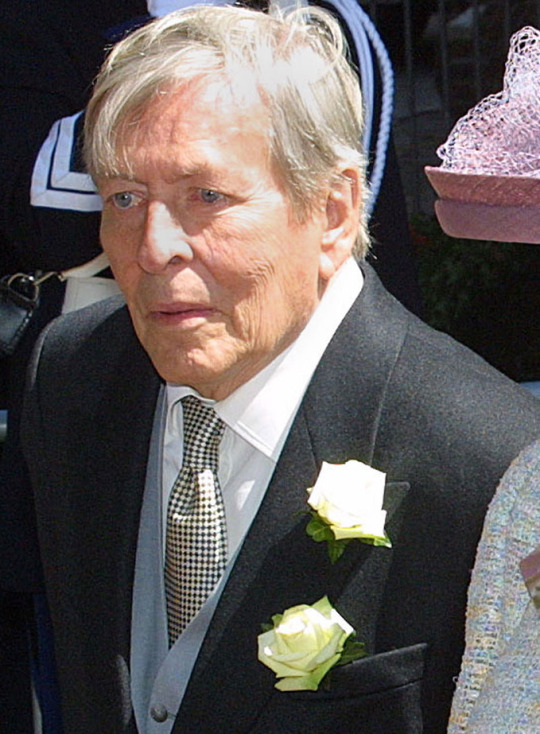

Royal Birthdays for today, September 6th:
Ivan V, Tsar of Russia, 1666
Peter II, King of Yugoslavia, 1923
Claus von Amsberg, Prince Consort of the Netherlands, 1926
Hisahito, Japanese Prince, 2006
5 notes
·
View notes
Text
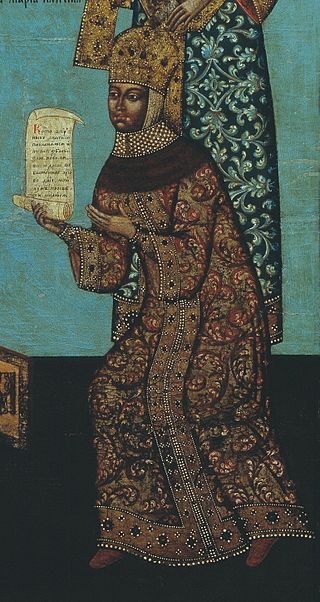
Maria Ilyinichna Miloslavskaya (1 April 1624 – 18 August 1669) was a Russian tsaritsa as the first spouse of tsar Alexis of Russia. She was the mother of tsar Feodor III of Russia, tsar Ivan V of Russia, and the princess regent Sophia Alekseyevna.
6 notes
·
View notes
Text
Tumblr Sexy Man of History
Round 1 Poll 4/4
The Contestants
Ivan V
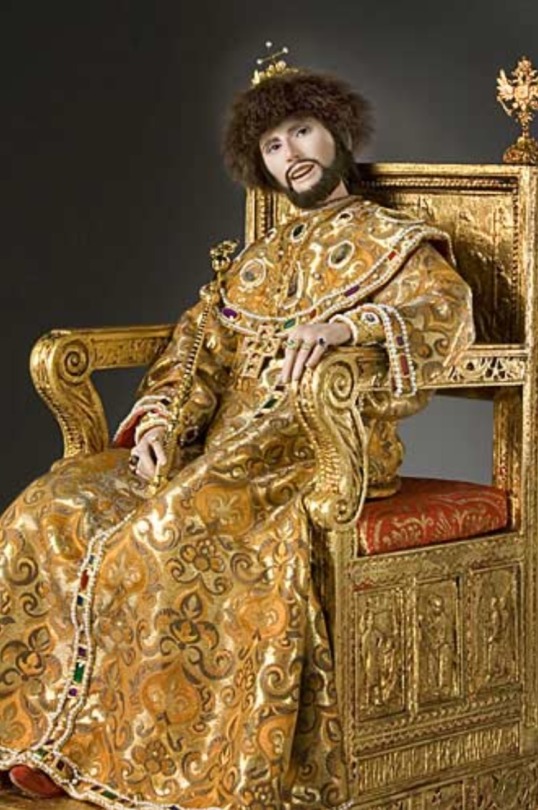
Ivan V was Co-Tsar with his younger half-brother Peter (the Great). He was the only son of Tsar Alexis' first wife, Maria Miloslavskaya. He was of poor health and didn't have much of an opinion in anything, making him a great puppet Tsar for his older sister Sophia. He died in 1696, leaving full Tsarship to Peter.
The source of the image used describes Ivan as "An idiot, but a nice idiot."
Batman

Batman has been known by many names. Bruce Wayne, The Dark Knight, Batman, and The World's Greatest Detective, to name a few. Batman is a very rich man with a kind yet lethal butler, Alfred, dead parents, and a tendency to adopt children and have them be his crime fighting sidekicks. He has hundreds of different BatSuits in literally every color.
Batman was added because he's our history teacher's favorite superhero, and we needed another person to fill the bracket. Plus, it's funny.
#batman#the dark knight#history#tumblr sexyman#tumblr sexymen poll#ivan v#chesters wacky poles#tw death mention
9 notes
·
View notes
Text
V: RE: VASILISA && IVAN
I. THE DAWN OF DAYS AND THE CAPTURE OF VASILISA
In the beginning of the world, the world itself knew few things. Each of these things took the time to open their eyes, stretch their hands and wander into their own corner of the world. they eventually became the tsars and tsaritsas who ruled over their corners of the world. But the Tsar of Death and the Tsar of Life feared each other and could not be reconciled in their vicious quarreling.
The Tsar and Tsaritsa of the Sea watched the world contend with such quarreling and such discontent from their watery world below. It did not concern them, for that fight was in the air, on the land. How could such a quarrel pierce into the bottom of their sea?
But soon the waters grew violent and rapid as the two Tsars above tried to stake their claim, so much so that the Sea Tsar could not leave to contend them in the world above, lest their fight rattle his domain that it would drown the known world- and the world had much more left to know.
Little Vasilisa was not but a bit of foam in the dawn of these days. She could not boast to be older than the dawn, but indeed knew more life than dusk himself, and so, she was born into the world in the beginning. She was the twelfth daughter of the Sea Tsar, who would have been the twelfth son of a twelfth son if such had ever been conceived before him, and he was not simply that that is.
She looked to her father and his hands that shook to keep his realm still. She looked to her father and his eyes that looked so weary with worry. She looked to her father and left for the dry world above. “ Give me only your blessing, and I promise I shall return with a resolution.” this made the Tsar laugh, for other great beings of the known world had tried and failed, or tried and died in the fashion that all those set apart do: they are forgotten.
“I will bless whatever floats to you, as your only chance. return without success, and I shall never let you leave my side, for fear for your life.”
So she went to the surface where the water was most turbulent, found solid footing on a rock made only for one foot to stand on and raised her hands as she spoke, “ enough.”
There was a temporary silence, a momentary lull before the quarrel arose to set the sea to turmoil once again. Yet Vasilisa began to talk in her quiet commanding voice. She talked of the dawn of days, of the coming first dusk. She talked of salt and sugar, of minutes and of hours, and as for as long as she talked, the sea was quiet. The world was quiet. The Tsars stopped in their quarrel.
And so she talked until the Tsaritsa of Sleep made their eyes heavy, and Vasilisa talked until her mouth could not form another word. She rested as they did, watching and waiting for eyes to open, thinking of new things to talk about, to hold their attention. A piece of driftwood floated to her feet as she held it, knowing her father’s blessing at once. She cradled it in her hands and rubbed the wood so smooth that it resembled a little man. she placed it in her pocket, to keep it safe.
When the Tsars awoke she had more words for them, words for days and nights on ends, and so such went on, with Vasilisa talking down every quarrel until one day, they asked a question, knowing she had run out of words.
To whom did she belong?
“ to myself. I am neither part of the realm of the living, nor of the dead, I am the child of that that is.”
And so a new temporary quarrel arose: who could claim the soul of Vasilisa. The Tsar of Death spoke first.
“ I have hundred of mountains that yield thousands of jewels, so many that you could not wear them all even if you changed them three times a day. I have the bones of everything that walked the earth and the souls that were in them, you would never be lonely if you chose me.”
Then the Tsar of Life came quick with a rebuttal.
“ I have hundreds of fields and valleys that yield thousands of grains of wheat, so many that you would never go hungry, even if you sought for want of such for the rest of your days.”
In that moment, Vasilisa saw a solution to the problem. “ I shall think on it. In peace, in silence. Let neither of you belittle the other until I have chosen, lest I choose neither.”
The solution to the endless quarrel would be not to answer. to let time pass until the world knew more and a better solution could be found. But death is impatient, while life could stand to wait.
So as the Tsaritsa of Sleep came to make eyes heavy, death evaded her and stole Vasilisa without a word. He took her deep beneath the earth, down with the glittering stone and the silence of his devoted souls. Death does not wait, nor play fair, death takes and takes and takes.
II. THE COUNTRY OF DEATH AND THE THREE RIDERS
Now, the country of death is a country that many have described as positively delightful and spectacularly beautiful. This, of course, is only true if the description of the country of death comes from one already dead.
Vasilisa, being forced into the position of inhabitant of this country - who was not dead herself- did not find this sentiment correct. As her eyes looked around the vast countryside, she could only see the bones of the world. The trees stood hollow and worm-eaten, the rivers were silvery yet filled with fish that lacked their skins. Even the people of this country, if they were not already some ghoul or demon, were entirely without their skins or organs. Their bones were as white or as silver as the rest of the country.
They tried to take Vasilisa’s warm hands and confront their confusion, but she retracted for fear she would forget that she was not part of this country.
“Oh, what color you have! what muscle! Oh, you poor thing to be so warm as you are!”
But at the sight of their Tsar their attention of her was lost. They fawned over him much like courtiers over their own king in lands far and distant from this one.
The great hall in which they stood boasted gems and iron and other such precious materials of the world below. The walls were lined with torches burning blue and cold as if they too had waned, flickered, and died leading them to light this lonely hall. In the center stood a lone red flame. The Tsar of Death instructed his court to have all the lights except that red flame extinguished by the time he returned. Death comes and goes as he pleases, sometimes with a flash, sometimes with a warning, and sometimes, like this particular instant, silently and within the blink of an eye.
Vasilisa had blinked and missed how he left. She wondered if it was his country he had left, or simply the hall. The way the skeletal court bustled about, she assumed the former. She herself, had no intention to stay.
Dead things often forget what it was to be alive, and in such awareness grow content. They no longer want for warmth or for the filling sensation of food. They were satisfied. Vasilisa watched as the blue flames went out one by one. She moved herself closer to the lone red flame feeling its warmth.
It was alive.
Perhaps that was how he left, she thought and stepped closer to look at what magic kept such a thing alive in a place such as this. But as she drew closer the light was extinguished by one of the court. they did not trust her, or her sudden interest in the red flame. Despite their disobedience the hall darkened and it was decided in quickness and precise strategy that Vasilisa should go out in search of a new flame. Thinking this was a way to escape, she agreed and let them show her how to exit the grand hall.
Finding something so alive in a place so deceased would be near impossible. She decided, quite firmly that such a flame surely had to be a way out of this country. She set off down the white roads and through silver fields until she came across the first anomaly in this strange nation: a black forest climbing up through valleys and down through the mountains in the distance.
The further she ventured into the forest, the harder it became to see. the forest whistled and crackled against its branches the further she ventured in. The bright white and silver of the country of death gave way to this dark forest. she wandered in darkness, hands outstretched, stepping from tree to tree until she saw a spark of light in the distance. Without thought and without fear she ran toward the light until she came across a rider and his horse. From his head to his toes, he was covered in white. His horse was white, his skin too. the sword at his side was white. the lantern in his hand was white, yet it held no flame to be seen.
“Hello little maid. If you could spare some food for a weary traveler I will be in your debt and at your call.”
Vasilisa felt her pocket vibrate and found inside the little drift wood man that she had crafted. From his lips she pulled an apple and offered it to the rider.
“I am in your debt, call for me when you have a great need. I will hear it, and I will come.”
They parted ways, leaving Vasilisa in the dark. She pressed on, making her way until she came across another light in the distance, this time a bright solitary red. As much as she hoped it was, it was not the flame she was looking for. Instead, the flameless red light was attached to a red lantern which was attached to a red rider in red clothes atop a red horse.
“Hello little maid. If you could spare some water for a weary traveler i will be in your debt and at your call.”
Once again she felt the little driftwood doll vibrate in her pocket and from its lips she drew a wooden flask with the finest spring water. She gave it willingly as the rider spoke.
“I am in your debt, call for me when you have a great need. I will hear it, and I will come.”
Once again she was left in the dark until she came upon the final rider. He was more somber and less cheerful than the previous riders. The light in his lantern was black as black could be. Everything about him was black.
He said not a word but held out his hand in want.
The little driftwood man did not vibrate this time. The rider did not ask, and therefore there was nothing to give. So she held out her hand in return and took his in equal silence. His great black hand felt neither cold, nor hot, in fact, it felt of nothing at all.
It felt like midwinter when all were so happily bundled in warmth in the great hall of her home beneath the sea. When the ice touched the surface and the flames of the sea kept them warm. She thought of this and his hand grew warm.
She felt the little driftwood man vibrate in her pocket and reached to pull a wooden compass from its mouth. She gave this to the black rider.
“ Your guidance is welcomed. There is no need to call. I will know and I will come.”
Vasilisa walked on a little further, finally finding a little crooked cottage with a fence made of barbs, lit up with flames of every color. The flames did not sit in lanterns, but in hollow skulls. She walked past the barbed fence and looked at each light. She saw many things in those lights, things that are secret and full of magic. Still, these were not the flame she was looking for. She moved through the yard and closer to the crooked cottage, noting a skull fashioned into lantern hanging off the porch on a crooked hook. Inside was a bright red flame. It flickered and danced. It was alive.
As soon as she stepped up the crooked steps onto the crooked porch the house began to chatter. The chatter became a rattle, which turned into a rumble, which turned into a great quake. From this clatter of sounds and vibrations the house stood up on two great clawed feet. Vasilisa had no time to look how high up the house had risen, for a great sound of wind clashed against the black forest. Her eyes were driven to look up, to see an old crooked woman in mortar directing the currents of air with a pestle. The woman was heading straight for the house.
III. THE TASKS OF BABA YAGA
Strange things recognize one another, like a fly realizes it is trapped in a spider’s web. There is the initial struggle to be free of the web, but the struggle only brings forth the spider.
The old woman stepped from her floating mortar and onto the crooked porch. The two women stared at each other in silence, waiting for the struggle of the nature of webs and flies.
Instead, Vasilisa stood quiet, and dipped into a formal hello.
“I have need of your assistance.”
Strange things recognize themselves, in silence, in directness, and on their own terms.
“Assistance comes at a high price; nothing is freely given. Everything is exchanged for something.” The old woman hobbled across the crooked porch, her spine creaking and cracking as she moved to look the girl in the eyes, “Suppose you could not pay it? What cause do you come to me with?”
Vasilisa spoke then of the two Tsars, her abduction to the country of death, and her need of the living flame hanging in the skull on the old woman’s porch.
The old woman cackled, low and deep. The ancient sound crackled like a fire and shook the frame of her own crooked house on tall beastly legs.
“What struggle, what strife, to be caught between the greediest of Tsars and Tsaristas! Suppose you meet my price, suppose you could handle such a flame, they will hunt you, and will pull at the essence of your being till you are less than the foam from which you sprung. Viy, that Tsar of Death, will vie for your bones, and polish them till they shine brighter than any of the jewels in his kingdom. Koschei, that Tsar of Life, will strive to make you as deathless as himself. He will stuff you so tightly into the most perfect egg he can find and in turn place it in so many other hidden things that it would stop your breath! Still, you’ll breathe, and each breath will feel like all the knives of the earth have plunged into your lungs. Redact your request and settle amongst these woods. There will be other girls- Yelenas and Maryas- girls that are prettier and stronger than you.
“But you, girl, are smarter and more patient than those that will come after you. Redact your request and make your home in this darkness where they cannot touch you. You will not be so lucky to wander in again. Perhaps even your Ivan will find you here. It would be less strife for everyone if he did.”
Vasilisa’s head spun with questions, but she felt the little driftwood man vibrate in her pocket and knew to keep silent. Instead, she spoke, “I cannot stay. I need your assistance.”
“Then three tasks I shall give, and you must do them exactly as I say. if you fail, then I shall take your essence before either Tsar can. Eat you whole, ah! what a straight spine! and good knees, too! I shall be most intrigued, to see you fail.”
So, three tasks she gave, each as impossible as the next. Each tasked was demanded to be completed before the rising dawn, the high tide of the sun, and the dark evening came.
Vasilisa looked into the darkness of the forest around them and questioned how time could be told.
“The horsemen ride through these woods, carrying their lanterns of time. The white horseman is the dawn, the red horseman is the golden sun, and the black horseman is the black night, and they will not help you in this. They dare not set foot in the house of Baba Yaga, for I have deemed my house be set apart.”
The old woman disappeared into the crooked house and left Vasilisa to her tasks. With each task, Vasilisa could see the riders farther off, and each time the little driftwood man vibrated in her pocket and helped her to complete the tasks exactly as they were given just as each rider road by. With the last task completed, the little driftwood man sat silent in her pocket, and Vasilisa knew it would no longer perform its miracles.
When the old woman asked how she had completed the tasks Vasilisa responded, “by my father’s blessing.”
“ Ah! but I have no need for blessings, those cursed things! fetch a large branch from the yard to fashion yourself a staff so you might carry your prize.”
So Vasilisa went and did exactly as she was told, and watched the old woman weave her magic about the branch and the skull with the living flame until both were fashioned together.
“Now, this belongs to you, never let it go out, lest you be lost, and never give it away without trials, lest your skull replace this one.” the old woman stopped the girl from going, offering one more item, “take this frog skin. Each blessing must be balanced with a curse, for everything has a price, and another half. Use it to hide from your Tsars only if you must. But, be warned, once you put it on you must wear it for three years. If you must take it off before the allotted time, let it only be for one hour and guard it carefully, for your life and it shall be linked. Wear it only if you must. A curse is hard to shake. Be cunning, and full of tricks. They will try to claim you, and they will tear you asunder in their greed. But first, they must catch you.”
Vasilisa went away then back through the dark, guided by the living flame in the skull on her staff and ventured back to the country of death in time to see Viy enter his hall. The Tsar of death reached fervently for her staff, but Vasilisa was quicker and set to light the lone torch. She watched then as the flame grew and engulfed the skeletal court, the jeweled hall, and everything else around her leaving Vasilisa to cling to her staff in hopes she would not be engulfed in its blazing flame.
When she opened her eyes, she knew everything around her to be incinerated. She knew herself to be free of the country of death. This, however, was not the country of life. It was the country of man, and it would be a terribly long journey to the country of her father, the Tsar of the Sea.
MORE TBD
5 notes
·
View notes
Note
Francis in Russia for the playlist ask please!
This was actually astonishingly fun, and much easier than I expected, because there are so few Russian bands from the time whose lyrics I can find in English and whose music I'm happy to stream right now. Despite that, I'm probably going to have to have a daily listen to Go_A just to balance it all out.


Feared before God and the Devil
A band AU playlist for hiding your feelings behind the Iron Curtain
Falco - Einzelhaft [solitary confinement]
Boney M. - Rasputin
Mark Bernes - Журавли [zuravli/cranes]
Steve Miller Band - Abracadabra
Mashina Vremeni - В добрый час [v dobryi chas/good luck]
Dschinghis Khan - Moskau
Kino - Ночь [noch/night]
Eurythmics - Sexcrime (1984)
Akvarium - Пепел [pepel/ashes]
Strannye Igry - Metamorfozi [metamorphoses]
Kino - Растопите снег [rastopite sneg/falling snow]
Akvarium - Танцы на грани весны (tantsy na grani vesny/dancing on the verge of spring)
Mashina Vremeni - Пока горит свеча [poka gorit svecha/while the candle is lit]
Kino - Проснись [prosnis'/passers-by]
Akvarium - Рок-н-ролл мертв [rok n roll mertv/rock and roll is dead]
Joanna Stingray - Love is No Joke
Bauhaus - Ziggy Stardust
Eurythmics - Greetings from a Dead Man
Pentangle - Lord Franklin
Comments below the cut, as usual!
Apparently Abracadabra was a huge disco hit in Russia. Same with Rasputin and Moskau, so...I’m hardly going to leave the bangers off the playlist! I snuck Falco on as a kind of bridge to the Russian stuff, and because the lyrics fit so well.
The Mark Bernes song was the last one he recorded - he was a beloved Soviet celebrity of Jewish ancestry, and ‘Cranes’ was recorded when he knew he was dying. Kino, Akvarium and Strannye Igry are all underground rock groups from the ‘80s (all from the Leningrad scene) whose music was smuggled out by Joanna Stingray and released on the compilation ‘Red Wave’, which came out after Francis gets back from Russia, but opens the door to these artists being able to use official recording studios and play officially sanctioned venues. Mashina Vremeni are a Moscow band formed at the same time.
Purely by chance, I find that the Kino song I put on Francis’ pining playlist was actually recorded in English by Joanna Stingray in the late ‘80s. So I put her version on here, and I am considering the potential, as a parallel to the ‘yunitsa’ nickname, of Philippa not understanding the original lyrics very well and then being blindsided when she gets hold of the Joanna Stingray version.
Eurythmics’ 1984 themed album is there for the air of menace, for Francis and his band being followed everywhere by KGB agents including Ivan and his documentary crew. Bauhaus bring a gothy ‘80s vibe to Ziggy, and probably encapsulate the way the world sees Francis and his constantly changing array of backing musicians. And Lord Franklin for being sad and near-death in cold places far from loved ones/kind of a Willoughby reference though I haven’t yet figured out what his parallel is in the AU.
The photos are from a Russian digital archive. The musicians is an untitled photo by L. Zhaleiko, and the child and dog is ‘friends’ by Valerie Shustov.
1) '[On cold channels, the illusion of free choice / Doors of steel locking out time / Pink-orange filters, chemistry is enlightening you / If you're not capable of living, you're gonna die, too / Your guilt will never be forgiven]'
2) 'He ruled the Russian land and never mind the Tsar / But the kazachok, he danced really wunderbar / In all affairs of state, he was the man to please'
3) '[A day will come I'll join the cranes in flying / In their flock through evening glaucous haze / From high above I will be sadly crying / For all I knew and loved in those days]'
4) 'I heat up / I can't cool down / My situation goes 'round and 'round'
5) '[Let it be like the thread was never tightened / Not worth running, not worth staying back / It's been like this forever- easy to speak,
Harder to play out, especially to sing]'
6) '[Moscow / Foreign and mysterious / Towers of red and gold / As cold as ice / Moscow / Who really knows you / knows a fire burns / in you so hot']
7) '[Well, but I've always loved the night. / And it's my business - to love the night, / And it's my right - into the shadow to go away.']
8) 'And so I face the wall / Turn my back against it all / How I wish I'd been unborn / Wish I wasn't living here.'
9) '[My efficiency increases with each passing day; / I love my walls, I call them "home". / I receive signals from different sides; / I sleep and see ashes in my dream.]'
10) '[I thought that the crying was laughter, / I confused the darkness for light, / Confused death for life / And myself - for someone else!']
11) '[I cannot live without her anymore. / Help me, / Please, help me... / I cannot live without warmth anymore, / Help me, / I’m begging, help me...']
12) '[I could write an epic story, / But why would I risk loosing my camouflage? / I could take a canvas and a brush. / But it ain't gonna change anything.']
13) '[there are some days when you lose your heart / and there're no words, no music, and no strength left. / on days like these i was away from myself / and never asked anyone for help.']
14) '[Every day you get back home when it's already dark / Every day you travel in subway when it's already dark / As for her, she lives in the centre of all cities / You want to to have her near you / But you've got to travel home 'cause it's already dark.']
15) '[Elbow to elbow, a brick in the wall; / We stood too proud, we paid triple the toll. / For those who have waited, for those who have marched, / For those who will never forgive us that.']
16) 'When the night's standing still / I can hear you play your guitar / But the tune, it seems so far / I took time to drink Slèzá / Your floor is my ceiling / So near but sometime away / But my beats with no delay / Alone in Russia, price I’ll have to pay.'
17) 'So where were the Spiders / While the flies tried to break our balls? / Just the beer light to guide us / So we bitched about his fans / And should we crush his sweet hands, oh...'
18) [instrumental]
19) 'With a hundred seamen he sailed away / To the frozen ocean in the month of May / To seek a passage all around the pole / Where we poor seamen do sometimes go...'
#band au: ringed castle#character: francis crawford#playlists: period appropriate#really proud of this tbh
8 notes
·
View notes
Text

January 02
[366] The Alamanni cross the frozen Rhine River in large numbers, invading the Roman Empire.
[1492] The Kingdom of Granada falls to the Christian forces of King Ferdinand V and Queen Isabella I, and the Moors loose their last foothold in Spain.
[1570] Tsar Ivan the Terrible's March to Novgorod begins.
[1788] Georgia votes to ratify the U.S. Constitution, becoming the fourth state in the modern United States.
[1815] Leading Romantic poet Lord Byron (27) weds Anne Isabella Milbanke (22).
[1905] The Russians surrendered Port Arthur (later: Lüshun, China) to the Japanese in the Russo-Japanese War.
[1971] 66 football fans are killed and 200 injured in a stampede at a stadium in Glasgow, Scotland.
[1981] The so-called Yorkshire Ripper is finally caught by British police.
[1985] Rolling Stone guitarist Ronnie Wood (37) marries British model Jo Karslake (29).
[1993] Supermodel Kim Alexis (32) weds ice hockey player Ron Duguay (35).
[2004] NASA's spacecraft Stardust collected dust grains from the comet Wild 2.
[2006] An explosion rocks the Sago Mine in Sago, West Virginia, where 13 were trapped and eventually 12 of them died.
[2019] United States international Christian Pulisic becomes the most expensive American soccer player when he moves from Borussia Dortmund to Chelsea for £57.6M ($73M).
[2022] American actress and TV host Ricki Lake marries her third husband Ross Burningham.
#on this day in history#otdih#on this day#otd#american history#world history#football#football history#soccer#ivan the terrible#christian pulisic#nasa#rolling stone#ricki lake#lord byron#january 02#january
2 notes
·
View notes
Text
Events 3.9
141 BC – Liu Che, posthumously known as Emperor Wu of Han, assumes the throne over the Han dynasty of China.
1009 – First known mention of Lithuania, in the annals of the monastery of Quedlinburg.
1226 – Khwarazmian sultan Jalal ad-Din conquers the Georgian capital of Tbilisi.
1230 – Bulgarian Tsar Ivan Asen II defeats Theodore of Epirus in the Battle of Klokotnitsa.
1500 – The fleet of Pedro Álvares Cabral leaves Lisbon for the Indies. The fleet will discover Brazil which lies within boundaries granted to Portugal in the Treaty of Tordesillas in 1494.
1701 – Safavid troops retreat from Basra, ending a three-year occupation.
1765 – After a campaign by the writer Voltaire, judges in Paris posthumously exonerate Jean Calas of murdering his son. Calas had been tortured and executed in 1762 on the charge, though his son may have actually died by suicide.
1776 – The Wealth of Nations by Scottish economist and philosopher Adam Smith is published.
1796 – Napoléon Bonaparte marries his first wife, Joséphine de Beauharnais.
1811 – Paraguayan forces defeat Manuel Belgrano at the Battle of Tacuarí.
1815 – Francis Ronalds describes the first battery-operated clock in the Philosophical Magazine.
1841 – The U.S. Supreme Court rules in the United States v. The Amistad case that captive Africans who had seized control of the ship carrying them had been taken into slavery illegally.
1842 – Giuseppe Verdi's third opera, Nabucco, receives its première performance in Milan; its success establishes Verdi as one of Italy's foremost opera composers.
1842 – The first documented discovery of gold in California occurs at Rancho San Francisco, six years before the California Gold Rush.
1847 – Mexican–American War: The first large-scale amphibious assault in U.S. history is launched in the Siege of Veracruz.
1862 – American Civil War: USS Monitor and CSS Virginia (rebuilt from the engines and lower hull of the USS Merrimack) fight to a draw in the Battle of Hampton Roads, the first battle between two ironclad warships.
1908 – Inter Milan was founded on Football Club Internazionale, following a schism from A.C. Milan.
1916 – Mexican Revolution: Pancho Villa leads nearly 500 Mexican raiders in an attack against the border town of Columbus, New Mexico.
1933 – Great Depression: President Franklin D. Roosevelt submits the Emergency Banking Act to Congress, the first of his New Deal policies.
1942 – World War II: Dutch East Indies unconditionally surrendered to the Japanese forces in Kalijati, Subang, West Java, and the Japanese completed their Dutch East Indies campaign.
1944 – World War II: Soviet Army planes attack Tallinn, Estonia.
1945 – World War II: A coup d'état by Japanese forces in French Indochina removes the French from power.
1945 – World War II: Allied forces carry out firebombing over Tokyo, destroying most of the capital and killing over 100,000 civilians.
1946 – Bolton Wanderers stadium disaster at Burnden Park, Bolton, England, kills 33 and injures hundreds more.
1954 – McCarthyism: CBS television broadcasts the See It Now episode, "A Report on Senator Joseph McCarthy", produced by Fred Friendly.
1956 – Soviet forces suppress mass demonstrations in the Georgian SSR, reacting to Nikita Khrushchev's de-Stalinization policy.
1957 – The 8.6 Mw Andreanof Islands earthquake shakes the Aleutian Islands, causing over $5 million in damage from ground movement and a destructive tsunami.
1959 – The Barbie doll makes its debut at the American International Toy Fair in New York.
1960 – Dr. Belding Hibbard Scribner implants for the first time a shunt he invented into a patient, which allows the patient to receive hemodialysis on a regular basis.
1961 – Sputnik 9 successfully launches, carrying a dog and a human dummy, and demonstrating that the Soviet Union was ready to begin human spaceflight.
1967 – Trans World Airlines Flight 553 crashes in a field in Concord Township, Ohio following a mid-air collision with a Beechcraft Baron, killing 26 people.
1974 – The Mars 7 Flyby bus releases the descent module too early, missing Mars.
1976 – Forty-two people die in the Cavalese cable car disaster, the worst cable-car accident to date.
1977 – The Hanafi Siege: In a 39-hour standoff, armed Hanafi Muslims seize three Washington, D.C., buildings.
1978 – President Soeharto inaugurated Jagorawi Toll Road, the first toll highway in Indonesia, connecting Jakarta, Bogor and Ciawi, West Java.
1987 – Chrysler announces its acquisition of American Motors Corporation
1997 – Comet Hale–Bopp: Observers in China, Mongolia and eastern Siberia are treated to a rare double feature as an eclipse permits Hale-Bopp to be seen during the day. As the comet made its closest approach to Earth on March 26, all 39 active members of the Heaven's Gate cult committed ritual mass suicide over a period of three days, in the belief that their spirits would be teleported into an alien spacecraft flying inside the comet's tail.
1997 – The Notorious B.I.G. is murdered in Los Angeles after attending the Soul Train Music Awards. He is gunned down leaving an after party at the Petersen Automotive Museum. His murder remains unsolved.
2011 – Space Shuttle Discovery makes its final landing after 39 flights.
2012 – A truce between the Salvadoran government and gangs in the country goes into effect when 30 gang leaders are transferred to lower security prisons.
1 note
·
View note
Text
Peter the Great was a towering figure in Russian history, who rose to power at a young age and transformed Russia into a powerful European state. However, his reign was not without controversy, and his legacy is still debated by historians to this day. Here is a brief overview of the rise and fall of Peter the Great:
Rise to Power:
Peter was born in Moscow in 1672, the son of Tsar Alexis I. When his father died in 1676, Peter's half-brother, Ivan V, ascended to the throne. However, Ivan was mentally disabled, and real power rested with his sister, Sophia, who acted as regent. When Peter's mother died in 1689, he was free to take a more active role in Russian politics.
In 1697, Peter embarked on a Grand Embassy to Europe, where he spent over a year touring western countries and learning about European culture and technology. He returned to Russia with a vision of modernizing the country, and began implementing a series of reforms aimed at transforming Russia into a powerful European state.
Fall from Power:
Peter's reign was marked by controversy and opposition from within Russian society. His reforms were often seen as too radical, and his methods too harsh. He was known for his brutal treatment of political opponents, and his campaigns against dissent often led to widespread suffering and hardship.
Despite his many achievements, Peter's later years were marked by increasing isolation and paranoia. He became increasingly reclusive, surrounding himself with sycophants and cutting himself off from the wider world. His last years were marked by illness and depression, and he died in 1725 at the age of 52.
Legacy:
Despite his controversial methods, Peter's legacy is still felt in Russia today. His reforms helped modernize Russia and establish it as a major European power. He also helped lay the foundations for Russia's industrialization, which would later propel it to become a world superpower.
Peter's legacy is also felt in Russian culture. He was a patron of the arts, sponsoring the development of new schools of painting, music, and literature. He also encouraged the growth of science and technology, sponsoring the construction of observatories and scientific institutions.
In conclusion, Peter the Great was a complex and controversial figure who left a lasting impact on Russian history and culture. While his methods were often harsh, his vision for modernizing Russia helped transform the country into a major European power, and his legacy continues to inspire and influence Russians to this day.
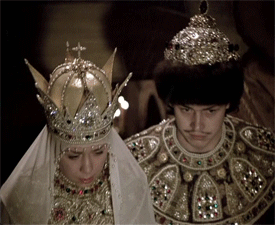
0 notes
Text
Ivan bunin dark avenues pdf editor
IVAN BUNIN DARK AVENUES PDF EDITOR >>Download (Herunterladen)
vk.cc/c7jKeU
IVAN BUNIN DARK AVENUES PDF EDITOR >> Online Lesen
bit.do/fSmfG
von IB narrative Kurzprosaverknüpfung · Zitiert von: 12 — Ivan Bunins narrative Kurzprosaverknüpfung Temnye allei wahrten Ivan Bunin and Vera Bunina Collections gewährte, mich mit dem Material Full text of "Dostoevsky studies [serial] : journal of the International Dostoevsky Society". See other formats. Dostoevsky Studies 19 n/i The Journal ofPublication Practice and the Perception of British and Irish core.ac.uk › download › pdfcore.ac.uk › download › pdfPDF von V Jansen · 2019 — particular is based on the Style manual for authors, editors and printers, the possible avenues that would lead to achievement and prosperity. 'dark forces', their true influence via Rasputin over the former Tsar Surviving in the diary of the celebrated writer Ivan Bunin is a. 07.03.2022 — 'dark yards' of consciousness are subsequently legitimised as the which introduces the context of Russian literature, namely Ivan Bunin. 60 BALLANGÉ, GUY (EDITOR). L'architecture autrichienne. Fischer von Erlach, Camillo Sitte, Otto Wagner, Adolf Loos,. Josef Hoffmann, Rudolf Schindler, 18.04.2010 — 94540 • [Bunin, Ivan Alekseevic] hier: Jwan Bunin, CHF 20 / EUR 14 • Originaltitel: The dark Flower; prince of West End Avenue.Zum Thema. Im Mittelpunkt dieses Essays steht die Autobiographie Trockijs, die er als erstes einer Rei- he umfangreicher Werke während seines dritten Exils125Seiten
https://www.tumblr.com/fosiverepe/698102414768750592/lou-marinoff-el-poder-del-tao-pdf-gratis, https://www.tumblr.com/fosiverepe/698102550956818432/torsi-fisika-pdf-files, https://www.tumblr.com/fosiverepe/698102989038256128/la-magie-de-voir-grand-pdf-editor, https://www.tumblr.com/fosiverepe/698102414768750592/lou-marinoff-el-poder-del-tao-pdf-gratis, https://www.tumblr.com/fosiverepe/698102701733691392/ley-de-partidos-politicos-2013-pdf.
0 notes
Photo




Royal Birthdays for today, September 6th:
Ivan V, Tsar of Russia, 1666
Peter II, King of Yugoslavia, 1923
Claus von Amsberg, Prince Consort of the Netherlands, 1926
Hisahito, Japanese Prince, 2006
13 notes
·
View notes
Text
AK-630M-2 Duet, Kanon CIWS-nya Rusia
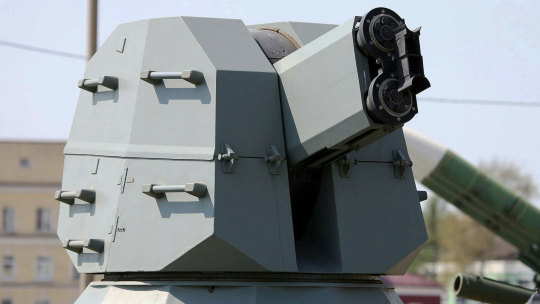
Salah satu sistem senjata perlindungan kapal laut adalah apa yang disebut sebagai CIWS atau Close-In Weapon System atau Sistem senjata terbuka jarak dekat. CIWS dikategorikan sebagai sistem senjata pertahanan udara titik atau point defence.
CIWS dirancang untuk menghadapi pesawat udara yang terbang rendah ataupun serangan misil, untuk menghantam kapal laut permukaan.
Untuk jenis modern yang dilengkapi dengan kubah, dikenal berupa produksi autocannon multi laras yang berputar saat melakukan penembakan, didukung dengan perangkat sensor berupa radar, perangkat computer, dan pengendali penembakan atau fire control systems, kesemuanya dirangkum dalam satu kubah yang dapat bergerak berputar secara horizontal.
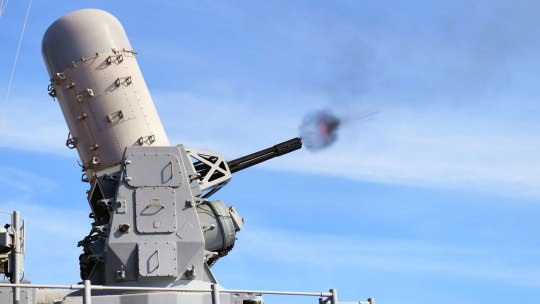
CIWS Goalkeeper
Sistem CIWS modern, tidak saja terdiri dari senjata autocannon multi-laras, tetapi juga di damping dengan peluncur misil.
Dilengkapi dengan infra-red, passive radar/ESM, atau semi-active radar terminal guidance untuk memandu misil saat diluncurkan kearah target, baik berupa pesawat udara ataupun ancaman dalam bentuk lainnya yang datang dari udara.
Dalam beberap kasus, senjata CIWS ini tidak saja dipasang di kapal perang, tetapi juga di tempatkan di darat untuk melindungi pangkalan.
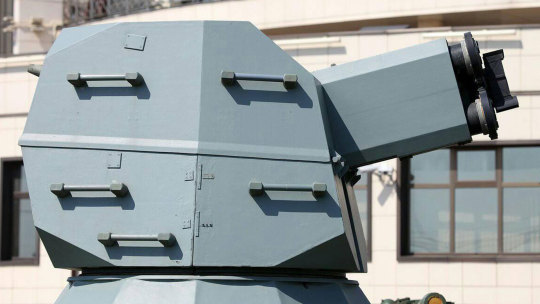
AK-630M2 Duet
Sistem AK-630M-2 Duet
Salah satu CIWS milik Rusia dikenal dengan sebutan AK-630M-2 Duet yang merupakan modernisasi dari CIWS versi KKD-630 dengan dua group kanon kaliber 30mm.
AK-630M-2 Duet memiliki kubah yang baru dengan teknologi stealth sehingga radar cross-section-nya (RCS) rendah.
AK-630M-2 Duet dapat dipasang pada kedudukan yang sudah ada (untuk KKD-630), dengan sedikit penyesuaian.
https://www.youtube.com/watch?v=qnaYsh5rBes
Riwayat Kanon 30mm Rusia
Russia mengadopsi senjata cannon kaliber 30mm sejak era Uni Soviet. Saat itu pengembang utama senjata otomatis kaliber 30mm di sana adalah Tula Instrument Engineering Design Bureau (KBP).
Senjata kanon yang diproduksi lembaga tersebut antara lain cannon otomatis kaliber 30mm yang digunakan pada kendaraan tempur BMP-2 dan Helikopter Ka-50/52, serta Mi-28, kemudian produksi model 2A72 dipasang pada modul kubah BMP-3, bersama dengan kanon kaliber 100mm dan senapan mesin kaliber 12,7mm (.50).
Sementara kanon model 2A38 laras ganda dipasang pada kendaraan tempur 2K22 Tunguska dan Pantsir anti-aircraft cannon-missile system (ZPRK), kanon GSH-301 pada pesawat tempur Su-27 dan MiG-29, serta berbagai pesawat tempur lainnya.

Kanon 30mm Rusia pada kubah BTR.
Rusia sudah menggunakan sistem senjata CIWS atau rapid naval-gun sejak era Hotchkiss revolving cannons pada masa Angkatan Laut Imperial Tsar.
Di era 1970an Russia mengembangkan CIWS dengan mengacu pada keberadaan CIWS pihak Block Barat dengan kehadiran Goalkeeper dari HAS, Belanda, dan Phalanx CIWS produksi General Dynamics, Amerika Serikat.
Pada tahun 1963, Russia menerapkan senjata gatling AK-630 berkaliber 30mm dilengkapi dengan radar, fire control system, dan sistem pengendali lainnya. “DUET” sendiri memulai debutnya pada tahun 2007.
https://www.youtube.com/watch?v=Pk43Uqd4uh4
AK-630M-2 Duet diproduksi oleh OAO AK Tulamashzavod dengan enam laras rodary cannon GSh-6-30 kaliber 30mm, dengan kecepatan tembak 10.000 munisi per menit. Dalam kubahnya terdapat 4.000 butir munisi siap tembak.
AK-630M-2 Duet CIWS antara lain terlihat mempersenjatai kapal pendarat kelas Ivan Gren, dan Kapal Perang jenis Korvet ber-misil Kelas Buyan-M.
Selain untuk menghadapi serangan dari udara, CIWS ini juga efektif untuk menetralisir target permukaan berupa kapal perang berukuran kecil, dan juga ranjau laut.
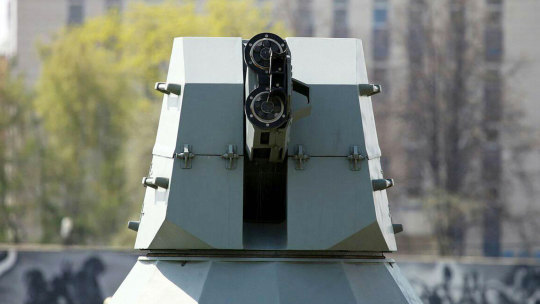
CIWS Rusia, AK-630M-2 Duet
Spesifikasi Teknis AK-630M-2 Duet
Penembakan rata-rata CIWS AK-630M2 “DUET” bergantung kepada penggunaan kelompok larasnya, satu atau dua laras sekaligus. Untuk satu laras dapat menembakan antara 4.000 hingga 5.000 munisi per menit, sedangkan untuk dua laras dapat menembakan antara 8.000 hingga 10.000 munisi per menit.
Dengan teknologi stealth yang diterapkan, senjata AK-630M-2 Duet ini memiliki RCS yang rendah dan sulit di deteksi maupun denga sistem magnetic sensor.
Unit cannon: dua laras yang masing-masing laras terdiri dari enam laras autocannon AO-18 kaliber 30mm.
- Armament two 30mm six-barrel AO-18 automatic AA cannons
- Jumlah munisi dalam penembakan beruntun:
- Dua laras 20-800
- Satu laras 10-400
- Jarak tembak maksimum 4000-5000 meter
Sudut gelar senjata, maksimum:
- Training ±180 derajat
- Elevation -25 to +90 derajat
- Muzzle velocity 890 meter/detik
- Bobot dudukan senjata tanpa munisi ≤3000 kg
- Bobot rangkaian munisi yang dimuat pada dua megasen 3836 (1918x2) kg.

AK-630 CIWS
Varian Dasar AK-630M-2 Duet CIWS
Seperti diutarakan diatas, CIWS AK-630M2 “DUET” dikembangkan dari CIWS AK-630, angka 630 diperkirakan sebagai kependekan dari 6 cannon caliber 30mm.
AK-630 didukung dengan radar MR-123, serta television detection and tracking, dirancang untuk menghadapi serangan pesawat tempur yang terbang rendah dan pesawat helicopter. Namun senjata ini juga efektif untuk menetralisir misil anti-kapal permukaan.
Namun jarak jangkauan tembaknya relatif pendek, karena laras cannon yang digunakan juga relative pendek, serta keterbatasan jangkauan sapuan radar dan sistem pembidik lainnya.
Sejak lulus uji, senjata ini segera ditempatkan dalam berbagai jenis kapal perang permukaan Uni Soviet (nama Russia pada masa itu).
https://www.youtube.com/watch?v=OHSx94WLrH0
Termasuk pada kapal permukaan pemburu ranjau, karena CWIS ini juga memiliki kepampuan untuk menghadapi kapal perang eprmukaan berukuran kecil maupun ranjau laut yang mengambang di permukaan air laut.
AK-630M-2 Duet CIWS disebut juga sebagai A-213-Vympel-A, merupakan kesatua dari Senjata dan dudukan AK-630M, sistem Radar kendali penembakan MR-123-02, Tracker Electro-Optical SP-521.
Radar memiliki kemampuan sapuan penjejakan target udara dan permukaan pada jarak 4 hingga 5 km, sementara tracker EO SP-521 mampu mendeteksi target udara seukuran MiG-21 pada jarak 7 km, atau kapal permukaan bersenjata torpedo pada jarak hingga 70km.
Kemampuan lainnya berupa moda pengintaian dan penjejakan, imun terhadap gangguan gelombang elektronika – high jamming immunity – dilengkapi dengan pembidik laser range-finder dan TV optical sight. Senjata tersebut kini diguakan oleh berbagai jenis kapal permukaan Angkatan Laut Russia, dari mulai fast attack boat hingga kapal perang penjelajah kelas Kirov.
Read the full article
0 notes